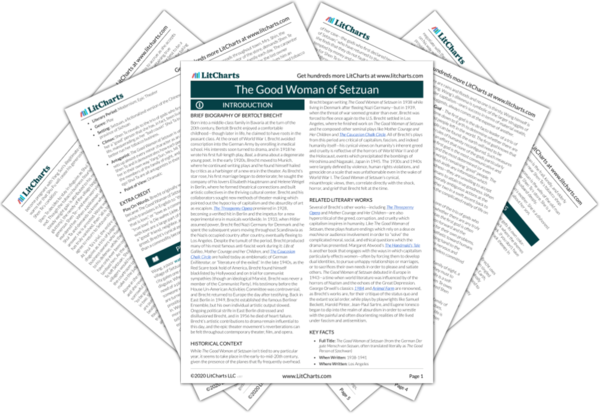Previous
Scene 2
|
Previous
Scene 2
|
The Good Woman of Setzuan: Scene 3 Summary & Analysis |
Next
Scene 3a
|


Upgrade to unlock the analysis and theme tracking for all of The Good Woman of SetzuanThe Good Woman of Setzuan!
Get LitCharts A+